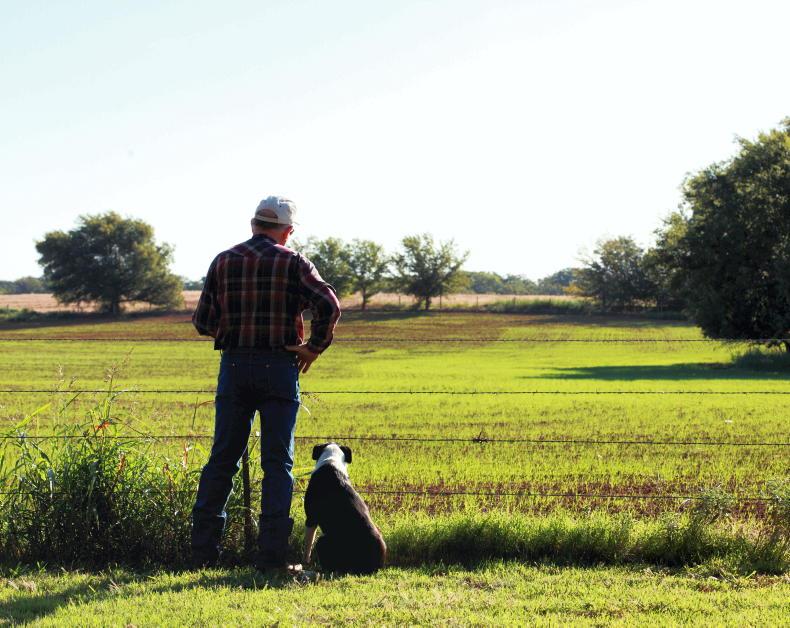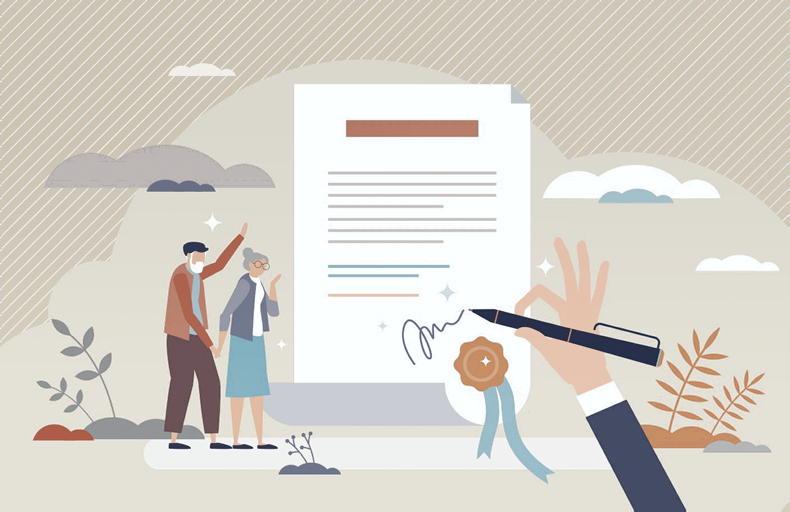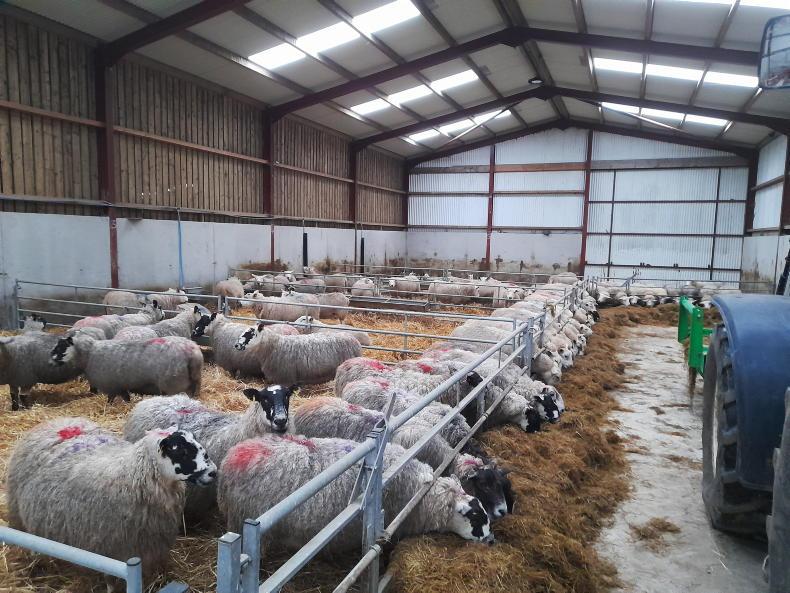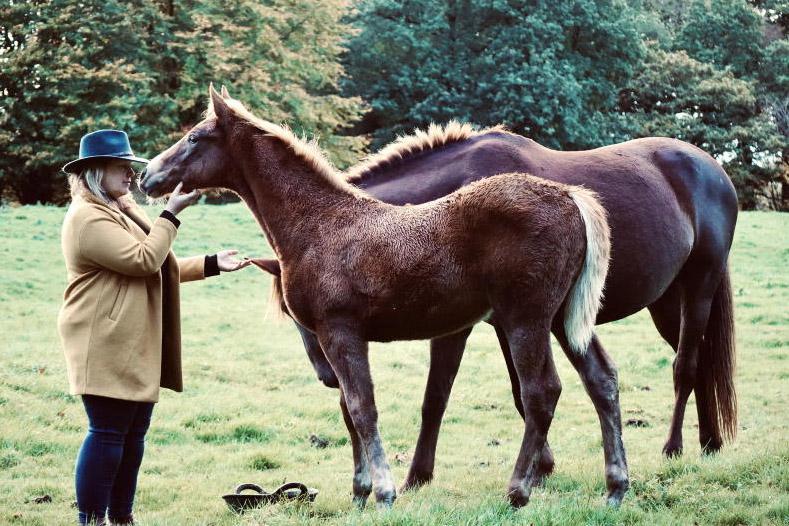How do some people perform better under pressure and maintain their focus; while others struggle?”
That is the question that members of the Irish Farmers’ Association (IFA) are asking– and more importantly, hoping to answer – in a new online training programme in resilience being rolled out this autumn.
Recent months have seen increased calls to the organisation from farmers feeling overwhelmed as a result of the demands of work, financial pressures and poor market prices, as well as the impact of COVID-19.
This has led to the IFA teaming up with Richard Burke, one of Ireland’s leading specialists in personal and organisational stress, to deliver online workshops designed to help farmers manage personal stress reactions and find practical ways to cope with whatever life throws their way.
“The analogy I have for the farming community is how to hang up your boots at the end of the day,” says Richard.
“Get things into perspective, leave the farm ‘til tomorrow, become the husband or the wife or the dad and engage in other aspects of your life and not be so obsessive about everything.”
Would you like to learn to say no? Would you like to learn to relax yourself?
Richard says that the course is not designed to teach people “what” to think, but “how” to think. He tries to keep the sessions as interactive as possible, by asking people what they would like to tackle.
“Would you like to learn to say no? Would you like to learn to relax yourself? Would you like to learn to leave work in work? Would you like to understand what anxiety is?” he lists.
Through the course, Richard aims to cover a broad range of topics, such as how the body and mind react to stress, how to complete a personal stress audit, cope with work overload and toxic people etc.
It’s like riding a bicycle, which is not easy at the start, but once you practice it, it actually starts to become very easy
But ultimately, the aim is to empower people with the skillset to identify the sources of stress in their life and become empowered to manage them.
“The trick of learning how to be resilient is to learn to control the things that you can control, which is your reaction, and try to manage the things that you can’t control,” says Richard.
“It’s like riding a bicycle, which is not easy at the start, but once you practice it, it actually starts to become very easy; and that’s the difference between resilient people and people who constantly crack under pressure.”
The Resilient Mind workshops will take place over two sessions: Group A will have their sessions on Monday 19 October and Monday 26 October from 7pm-10pm, while Group B will have their sessions on Tuesday 20 October and Tuesday 27 October from 10am-1pm. The fee will be €45.
To register, visit
www.ifa.ie/resilience
‘Resilience is something you can learn’
For Caroline Farrell, resilience is “to be able to read the situation and handle it without getting myself into an anxious or a stressful state.”
And she hopes that the “Resilient Mind” course will provide IFA members with the “tools” to handle pressure on-farm and off, especially since COVID-19.
As chair of the IFA Farm Family & Social Affairs committee, she explains how many members have expressed feeling stressed and anxious since March.
“A lot of it was isolation,” says Caroline, adding that other issues that came up in phone calls included loss of off-farm jobs and fears for family in frontline roles.
“It is causing anxiety and stress for people and certainly it’s not going to go away in the immediate or short-term,” she says, “so people have to be as resilient as they can and I suppose resilience is something that you can learn.”
Having taken part in sessions for IFA officers already, Caroline believes that the training can have many benefits; for instance, improving farm safety if people are not in an anxious state.
She also hopes that those in IFA will be equipped with the resilience to support members to the best of their ability, while also minding their own mental health.
“Because when you’re listening to people’s issues and you empathise with them and you take them very seriously, you can’t let it get in on yourself,” she explains.
How do some people perform better under pressure and maintain their focus; while others struggle?”
That is the question that members of the Irish Farmers’ Association (IFA) are asking– and more importantly, hoping to answer – in a new online training programme in resilience being rolled out this autumn.
Recent months have seen increased calls to the organisation from farmers feeling overwhelmed as a result of the demands of work, financial pressures and poor market prices, as well as the impact of COVID-19.
This has led to the IFA teaming up with Richard Burke, one of Ireland’s leading specialists in personal and organisational stress, to deliver online workshops designed to help farmers manage personal stress reactions and find practical ways to cope with whatever life throws their way.
“The analogy I have for the farming community is how to hang up your boots at the end of the day,” says Richard.
“Get things into perspective, leave the farm ‘til tomorrow, become the husband or the wife or the dad and engage in other aspects of your life and not be so obsessive about everything.”
Would you like to learn to say no? Would you like to learn to relax yourself?
Richard says that the course is not designed to teach people “what” to think, but “how” to think. He tries to keep the sessions as interactive as possible, by asking people what they would like to tackle.
“Would you like to learn to say no? Would you like to learn to relax yourself? Would you like to learn to leave work in work? Would you like to understand what anxiety is?” he lists.
Through the course, Richard aims to cover a broad range of topics, such as how the body and mind react to stress, how to complete a personal stress audit, cope with work overload and toxic people etc.
It’s like riding a bicycle, which is not easy at the start, but once you practice it, it actually starts to become very easy
But ultimately, the aim is to empower people with the skillset to identify the sources of stress in their life and become empowered to manage them.
“The trick of learning how to be resilient is to learn to control the things that you can control, which is your reaction, and try to manage the things that you can’t control,” says Richard.
“It’s like riding a bicycle, which is not easy at the start, but once you practice it, it actually starts to become very easy; and that’s the difference between resilient people and people who constantly crack under pressure.”
The Resilient Mind workshops will take place over two sessions: Group A will have their sessions on Monday 19 October and Monday 26 October from 7pm-10pm, while Group B will have their sessions on Tuesday 20 October and Tuesday 27 October from 10am-1pm. The fee will be €45.
To register, visit
www.ifa.ie/resilience
‘Resilience is something you can learn’
For Caroline Farrell, resilience is “to be able to read the situation and handle it without getting myself into an anxious or a stressful state.”
And she hopes that the “Resilient Mind” course will provide IFA members with the “tools” to handle pressure on-farm and off, especially since COVID-19.
As chair of the IFA Farm Family & Social Affairs committee, she explains how many members have expressed feeling stressed and anxious since March.
“A lot of it was isolation,” says Caroline, adding that other issues that came up in phone calls included loss of off-farm jobs and fears for family in frontline roles.
“It is causing anxiety and stress for people and certainly it’s not going to go away in the immediate or short-term,” she says, “so people have to be as resilient as they can and I suppose resilience is something that you can learn.”
Having taken part in sessions for IFA officers already, Caroline believes that the training can have many benefits; for instance, improving farm safety if people are not in an anxious state.
She also hopes that those in IFA will be equipped with the resilience to support members to the best of their ability, while also minding their own mental health.
“Because when you’re listening to people’s issues and you empathise with them and you take them very seriously, you can’t let it get in on yourself,” she explains.










SHARING OPTIONS